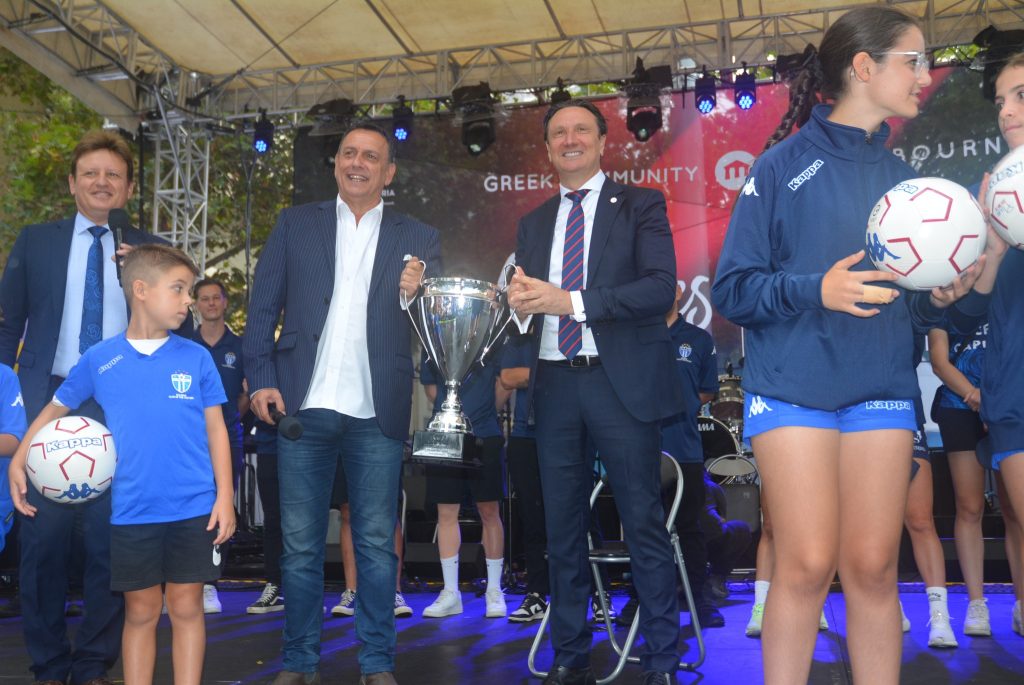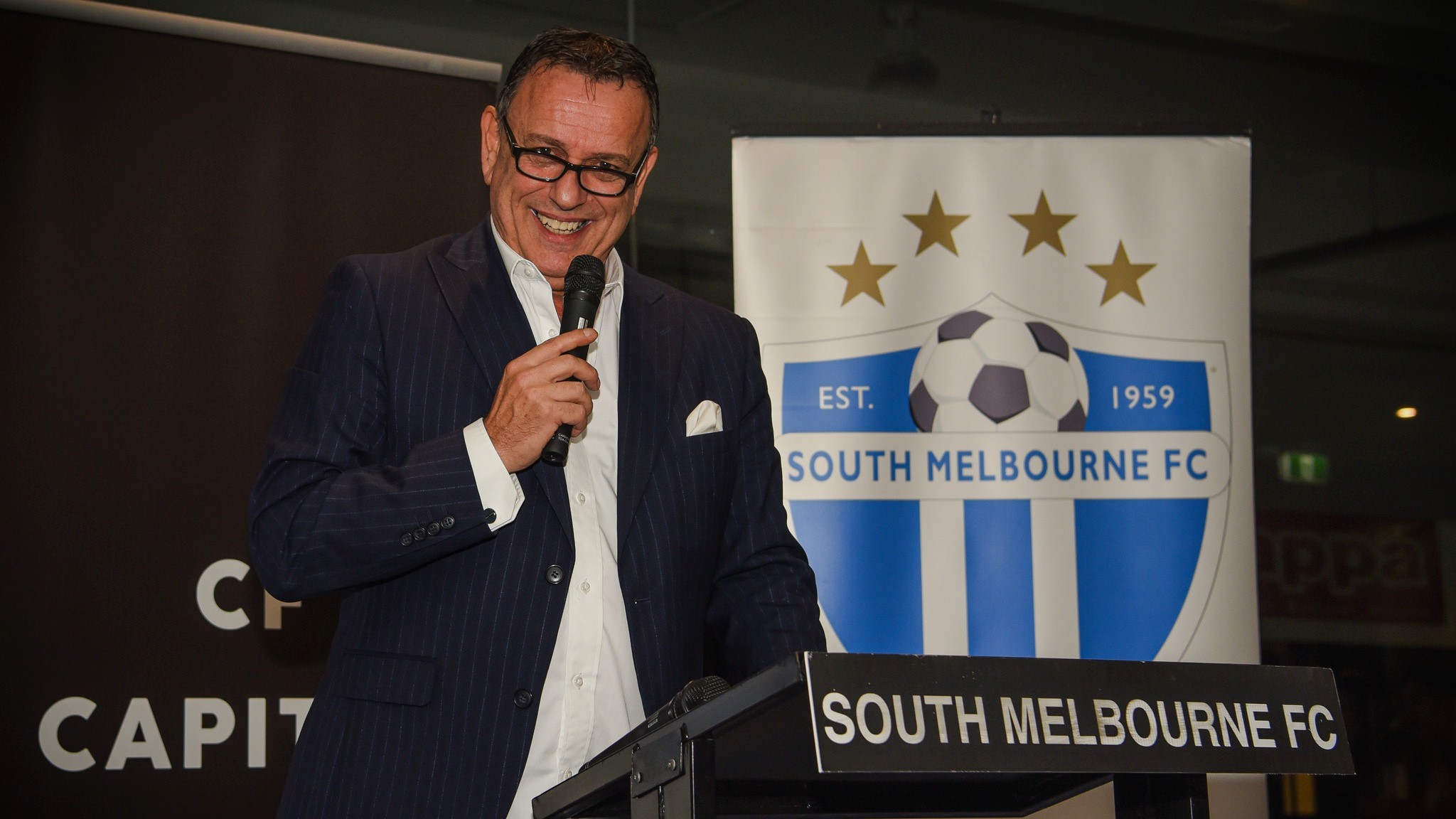“I can’t remember not having South Melbourne FC in my life,” Nicholas Maikousis, the President of the historic football club in Victoria, tells The Greek Herald.
His family – from his father to his grandfather, his uncles and today, his children – have all been connected for decades to football in Australia.
“It is pretty special,” he says.
Even when Nicholas was working in Adelaide, South Australia around 1990, he remembers jumping in the car on a Saturday night with his wife to drive all the way to Melbourne in order to attend the 1991 grand final between South Melbourne FC and Melbourne FC.
As Nicholas would later tell me, on the way to Middle Park on Sundays he would also bond with his father Dimitris.
This story starts with him.
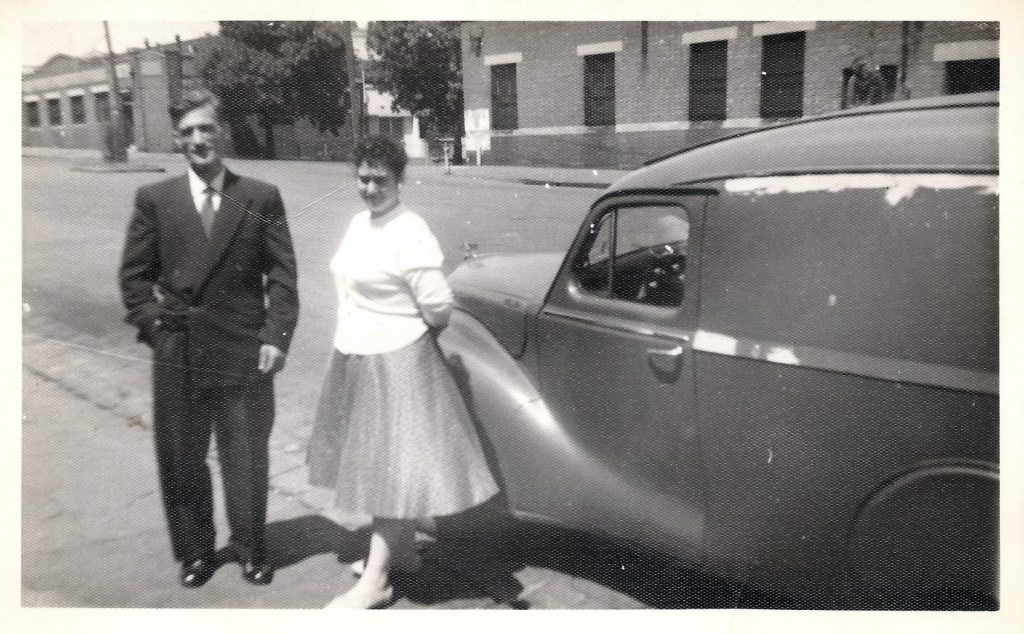
‘Wouldn’t miss a game’:
Nicholas’ father arrived in Australia in 1953 at 20 years of age. He left behind his two brothers, sister and his parents.
Within two years he started following Yarra Park, one of the three football clubs alongside Hellenic and South Melbourne United, which merged in order to form South Melbourne Hellas in 1959.
The Greek element of that merger was the supporters.
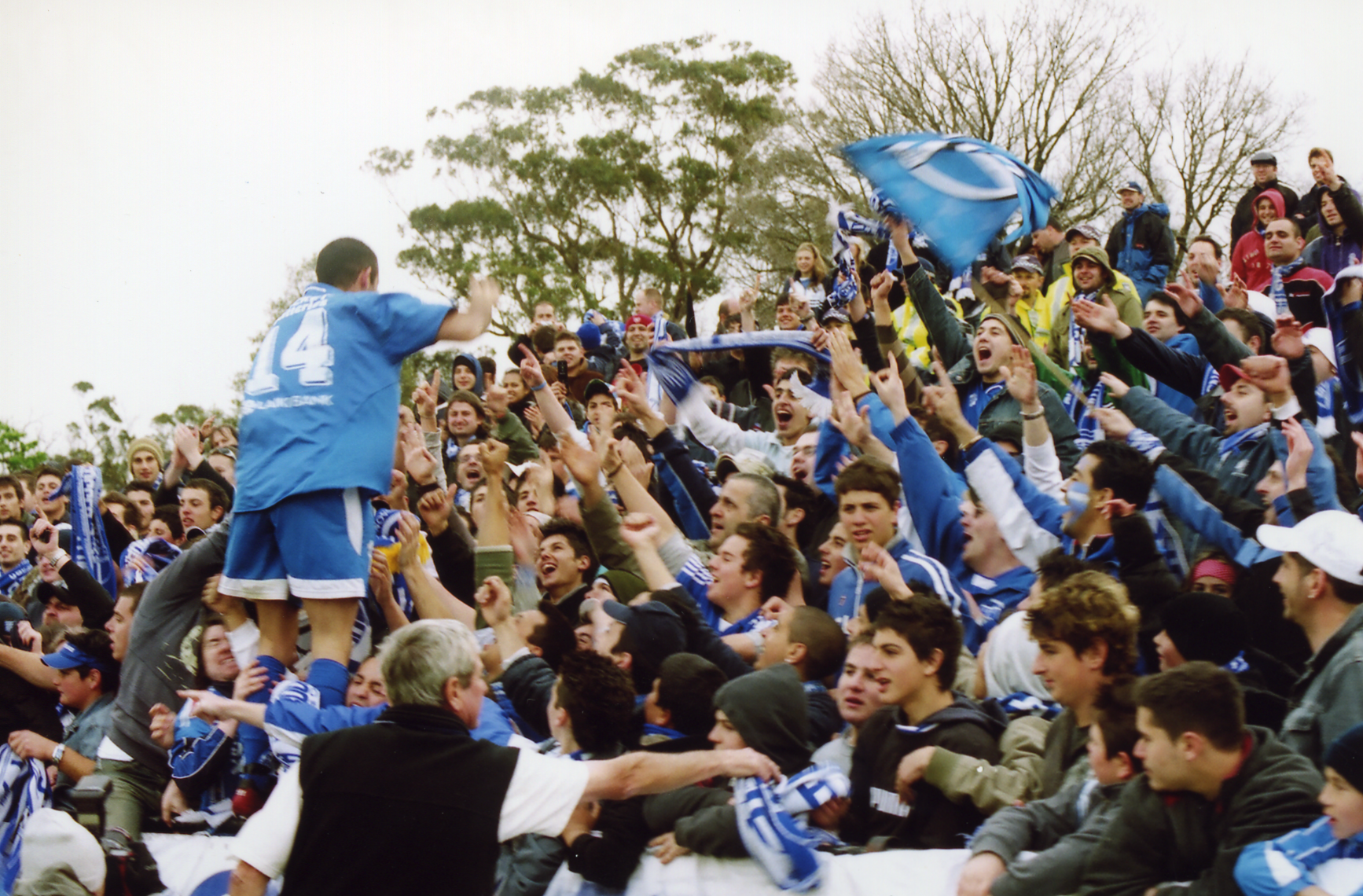
“Remember that World War II was not long before my father’s arrival. The history of South Melbourne United [an Anglo supported club] goes back to the 1890s, but they didn’t have a lot of support. Because of the first and the second World War, all players and supporters went back and forth for the mother country. What Greeks had? Supporters!” Nicholas says.
Within a couple of years, his father brought the rest of his family to Australia.
“The whole family then got heavily involved,” Nicholas, whose uncle also played for South Melbourne, says.
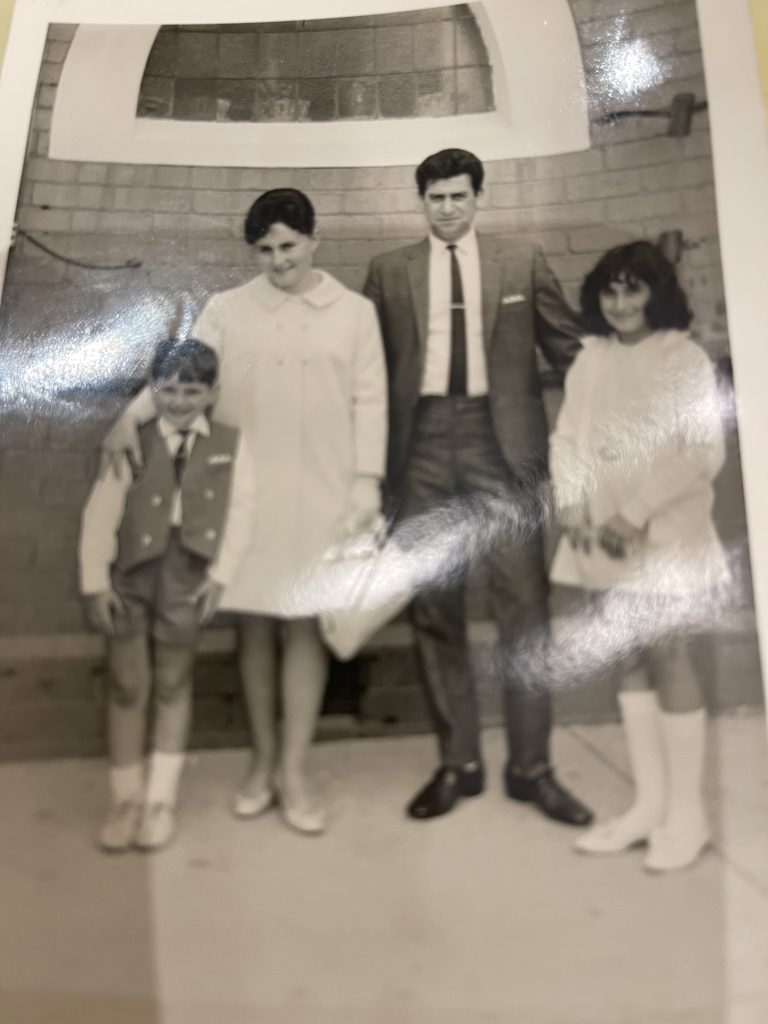
His dad first brought him to a South Melbourne game at the age of two.
“We wouldn’t miss a game,” he says. “On Sundays it was always South Melbourne.”
Nicholas got more involved with the club when he came back from Adelaide. When he started, the team’s name had just changed to “Lakers.” In the 1980s, it became “South Melbourne Gunners” before changing to “South Melbourne Hellas” and finally, “South Melbourne” – the name that still stands today.
“My view was that we didn’t need to have the Hellas part. We are a football club, that’s what we are. Yes, our heritage is Greek and we will always get the Greek support. That was my view at the time. I have changed a little bit since then,” Nicholas explains.

A bond between father and son:
The South Melbourne President openly shares personal memories marked in his mind, especially related to his father and their bond built through a connection to the club.
In one memory at the stadium when Nicholas was a 30-year-old club Vice President, Nicholas remembers how an Australian marketing professional pointed at him and said to his father: “You are responsible for him.”
“My father said for the first time ‘I am really proud of him.’ I had never heard it before because my dad was a tough guy. We got very close later in our lives as I became an adult. That had a huge impact,” Nicholas says.
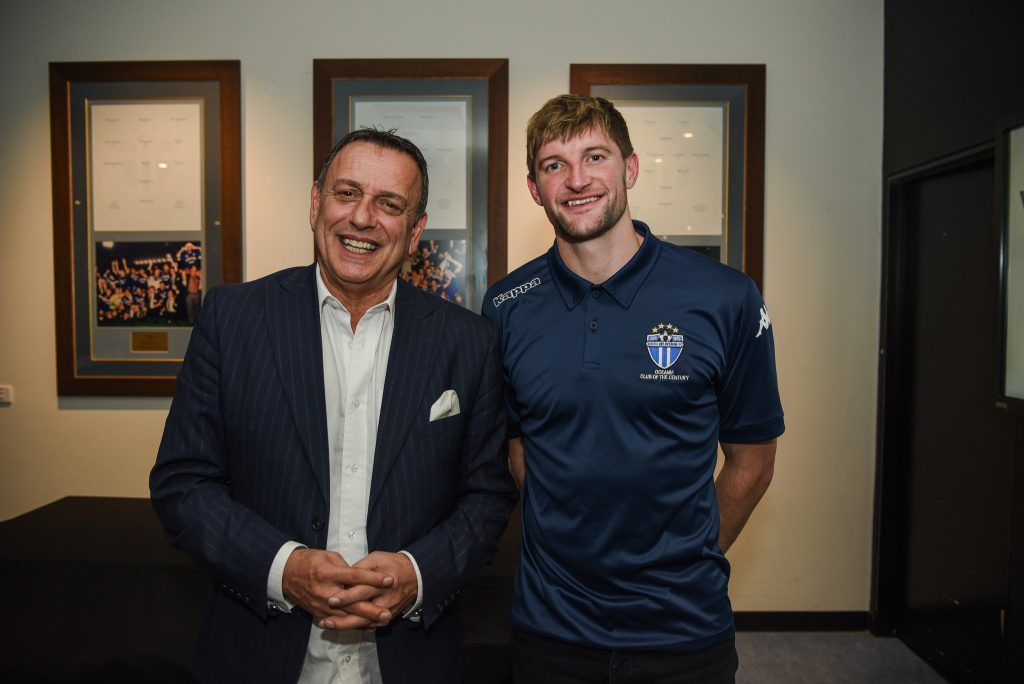
When his father passed away, then-President George Vassilopoulos put a South Melbourne scarf over the coffin.
On the day of his ‘trisagio,’ South Melbourne was playing in a semi-final and Nicholas walked alone to the stadium before leaving on half-time to go to his father’s ‘trisagio.’ It was like they were together, going to one more game, as they always used to on Sundays.
“Ever since I became 18, my father and I, it doesn’t matter what we were doing, we always went together to South Melbourne. Sunday, 3 o’ clock. And that’s when he started to break down a little bit, opened up and start talking. We bonded with each other while driving to the stadium,” Nicholas explains.
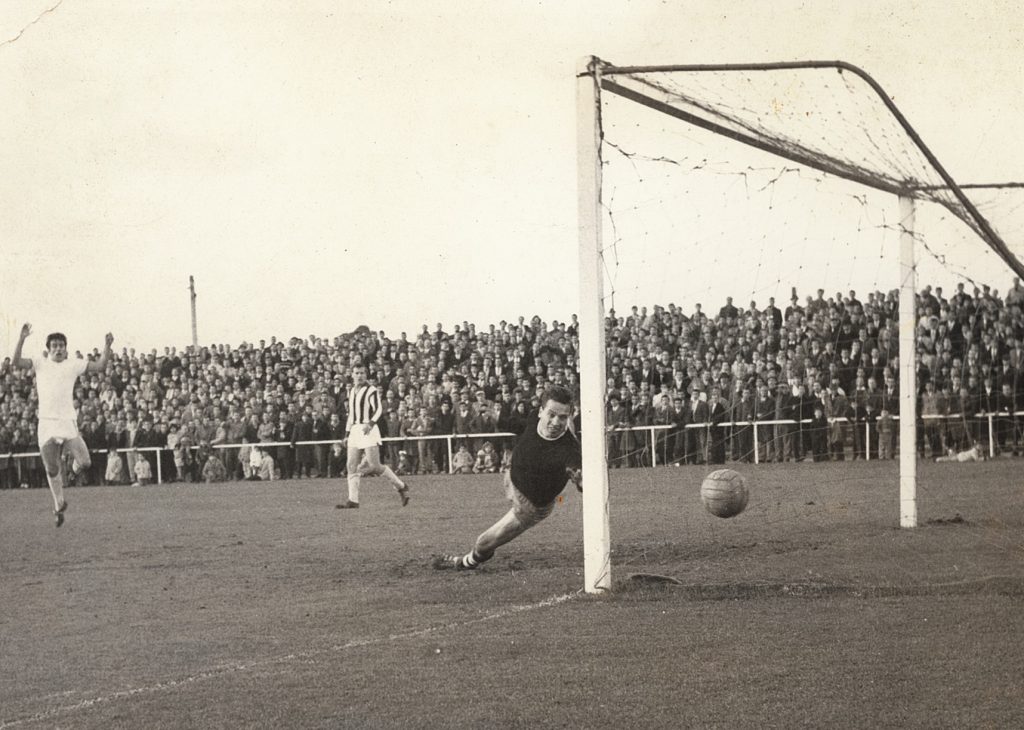
More than just a club:
Nicholas is happy that his kids are, as he says, both crazy South Melbourne people. His son has played for the team. They even managed to see the final years of South Melbourne at the highest level in football – the National Soccer League (NSL).
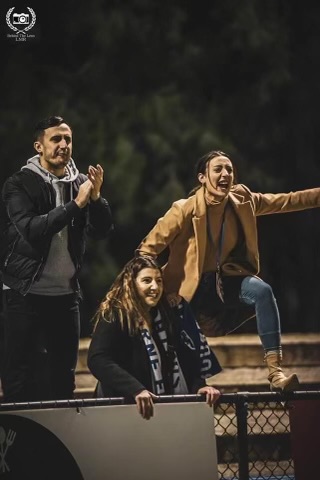
The club was chosen by the International Federation of Football History & Statistics as the Oceania Club of the Century for the 20th century. As Nicholas says, South Melbourne was the powerhouse of Australian football.
“You can go now to any part of Australia and South Melbourne is still a brand that is respected and not only within the Greek community, also within the broader football community,” he says.
“We are treated, when we go particularly interstate, like royalty. It’s extraordinary because those people know that South Melbourne was Australia’s most successful club up until the A-league was created.”
The club, out of which more than 50 players have worn the Socceroos shirt, won the NSL back-to-back before representing Australia in the 2000 FIFA Club World Championship in Brazil, where it competed against Manchester United, Vasco Da Gama and Necaxa. South Melbourne was the only team to have represented Australia in the competition.
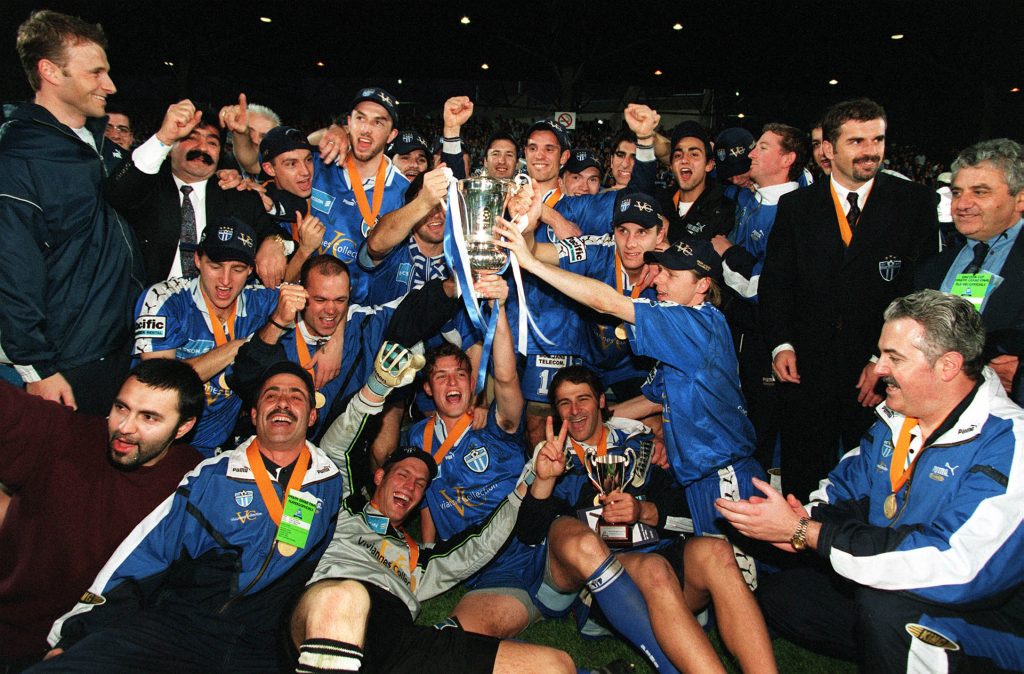
“When we went to Rio, we didn’t go there with Greek flags, we represented Australia, we were Australian champions,” Nicholas says.
From coaches at an international level such as Ange Postecoglou to club administrators, South Melbourne has contributed a lot to Australian football.
But in 2004, the club went from competing at the highest level of Australian football, to playing in the local championship – the Victorian Premier League.

Based on what the club has contributed to football in Australia, how things have ended up is for Nicholas an “absolute disgrace.”
Despite having applied twice for a license to participate in the A-league, their efforts have not been successful.
“We won’t be applying again,” Nicholas says. “We are happy with the B-league (National Second Division) right now, the new competition which is going to start next year.”
Once the competition starts, Nicholas will consider handing his chair to someone else.
“I called the last 20 years the dark ages,” he says looking back. “I call what is happening now and next year with the B-league, the renaissance.”
